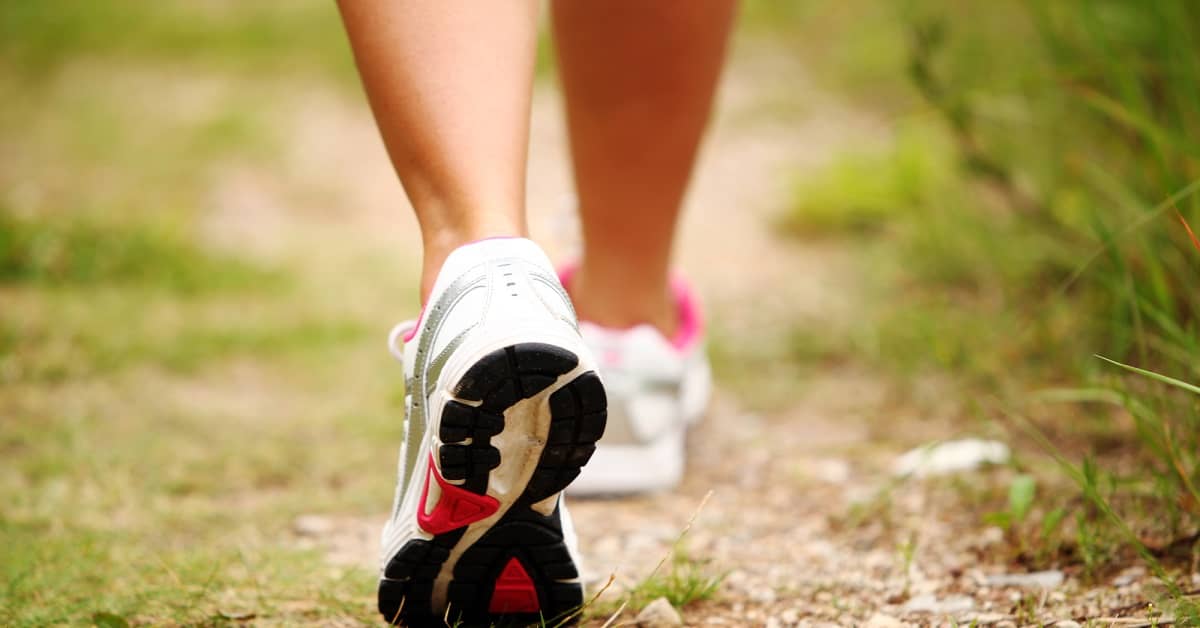
You might think it takes a grueling 10,000 steps a day to keep your memory sharp and your brain young. But what if you could slash that number, save yourself an hour, and still boost your cognitive power? New research is turning the old "step-count gospel" on its head — and the surprising findings could transform how you think about brain health forever.
Key Takeaways
-
You don’t need 10,000 steps to protect your brain — as few as 8,900 steps a day can significantly slow cognitive decline and preserve gray matter.
-
Even short bursts of activity matter — 4,000 steps (or 40 minutes of moderate movement) can activate brain-boosting genes linked to memory and learning.
-
Exercise benefits are seen even with modest activity — you don’t have to be a marathon runner to make a measurable difference in brain health.
New Study Destroys the 10,000-Step Myth for Brain Health
To keep memory loss at bay, many people make sure they clock up 10,000 steps every day. Fitbits and other devices make it easy to count every step you take and make sure you get enough exercise.
For most of us, 10,000 steps is a lot. Even at a moderate pace, such a goal would take an hour and forty minutes to achieve. That's a big chunk of time busy people can’t spare, even allowing for the fact that the wearable devices count each step from the moment you get out of bed.
The good news is you don't have to walk quite that much to maximize the benefits to memory and cognition. It may even be possible to walk a full hour less and still get a major brain boost.
Here’s the new evidence. . .
8% More Gray Matter
10,000 steps a day is a benchmark against which all daily activity has been measured since the 1960s. But this figure was not a product of a scientific study. It simply reflected what some experts believed was needed to preserve cardiovascular health.
To get a figure grounded in a clinical trial, a large group of researchers from different institutions, led by Harvard Medical School, decided to find out how many steps a day are required to specifically preserve brain function.
They tracked 183 healthy men and women with an average age of 73, fairly advanced in age. None of the participants had been diagnosed with dementia, but some had elevated levels of the amyloid brain plaques that are linked to cognitive decline and Alzheimer's. (As readers of this publication know, plaques have not been established as the cause of dementia.)
The researchers factored in age, gender, education, weight, blood pressure, whether taking blood pressure medication, apoE4 status (the gene that predisposes people to dementia), and smoking habits. All the participants underwent brain scans at the start and finish of the study, plus annual tests of cognition.
Save Yourself a Few Steps
After eight years, the more active members of the group retained eight percent more gray matter and experienced less cognitive decline.
Neurologist JasmeerChhatwal, one of the study authors, commented, "One of the most striking findings from our study was that greater physical activity not only appeared to have positive effects on slowing cognitive decline, but also on slowing the rate of brain tissue loss over time in normal people who had high levels of amyloid plaque in the brain."
Fellow author Reisa Sperling pointed out, "Beneficial effects were seen at even modest levels of physical activity, but were most prominent at around 8,900 steps..."Please note that the optimum amount of exercise for heart health, cancer prevention, and other objectives might be more or less than the results seen in this study. This study only looked at the brain effects.
Meanwhile, if 8,900 steps still seems like too much, a second study suggests benefits might come from a fraction of that number.
Boosts Connections in Your Hippocampus
Neuroscientists at Oregon Health & Science University set out to discover the brain-specific benefits of single short bouts of exercise.
The design of the experiment was to place physically inactive mice on wheels and let them run the human equivalent of 4,000 steps.
In doing so, the researchers made a key discovery.
A largely ignored gene called Mtss1L was activated by these short bursts of exercise. It promoted dendritic spines -- small growths on neurons -- that increase connections and the transfer of information across brain cells. This was seen in the hippocampus, a key memory and learning center of the brain.
The gene is very similar to human genes that prime the brain for learning.
Lead researcher Gary Westbrook said, "Exercise is cheap, and you don’t necessarily need a fancy gym membership or have to run 10 miles a day.”
Of course, mice aren't humans, so we’re not sure this finding will apply to us, but 4000 steps will take 40 minutes. That's still a good workout for the heart, and what's good for the heart is good for the brain, too.Summary
While 10,000 steps a day has long been the gold standard for fitness, it turns out your brain may benefit from far fewer. Researchers found that 8,900 daily steps slowed memory loss and preserved gray matter even in older adults with high amyloid plaque levels — a major risk factor for cognitive decline. Meanwhile, a second study suggests that even brief bursts of movement — equivalent to just 4,000 steps — can activate powerful brain-boosting genes linked to memory and learning. The bottom line: even modest amounts of exercise can deliver major cognitive benefits without devouring hours of your day.
Frequently Asked Questions
Do I need to walk 10,000 steps a day for my brain health?
No — new research shows significant brain benefits with around 8,900 steps per day.
Is less exercise still helpful for memory and cognition?
Yes! Even short bouts of movement (like 4,000 steps) can boost brain connections in memory centers.
Does walking help prevent Alzheimer’s or dementia?
While walking boosts brain health, it’s not a guaranteed shield against Alzheimer’s. However, it may slow cognitive decline, especially in those at risk.
How much time does it take to get 4,000 steps?
About 40 minutes of moderate walking can add up to 4,000 steps.
Are the benefits of walking only for older adults?
No, while this study focused on older adults, regular movement at any age supports brain health and cognitive function.
- Rabin JS, Klein H, Kirn DR, et al. Associations of Physical Activity and β-Amyloid With Longitudinal Cognition and Neurodegeneration in Clinically Normal Older Adults. JAMA Neurol. 2019;76(10):1203–1210.
- Massachusetts General Hospital. (2019, July 16). Exercise offers protection against Alzheimer's. ScienceDaily.
- Christina ChatziYingyu ZhangWiiliam D HendricksYang ChenEric SchnellRichard H GoodmanGary L Westbrook (2019) Exercise-induced enhancement of synaptic function triggered by the inverse BAR protein, Mtss1L eLife 8:e45920.
- Robinson, E. (2019, July 2). Study reveals a short bout of exercise enhances brain function. Oregon Health & Science University (OHSU).
